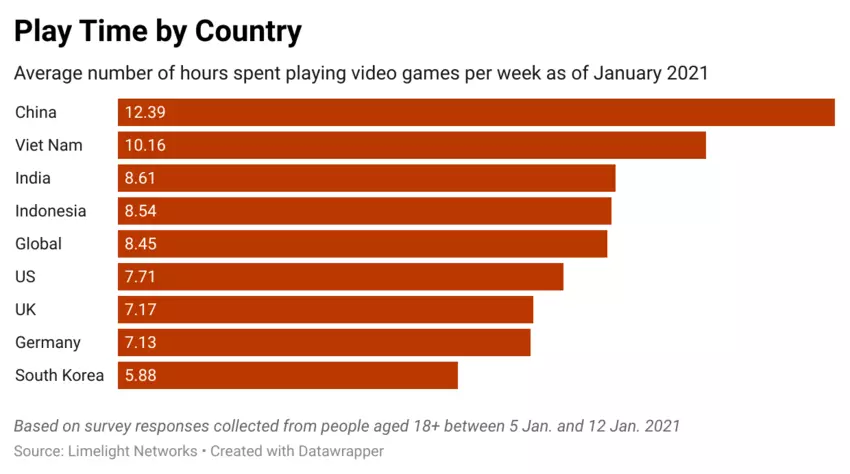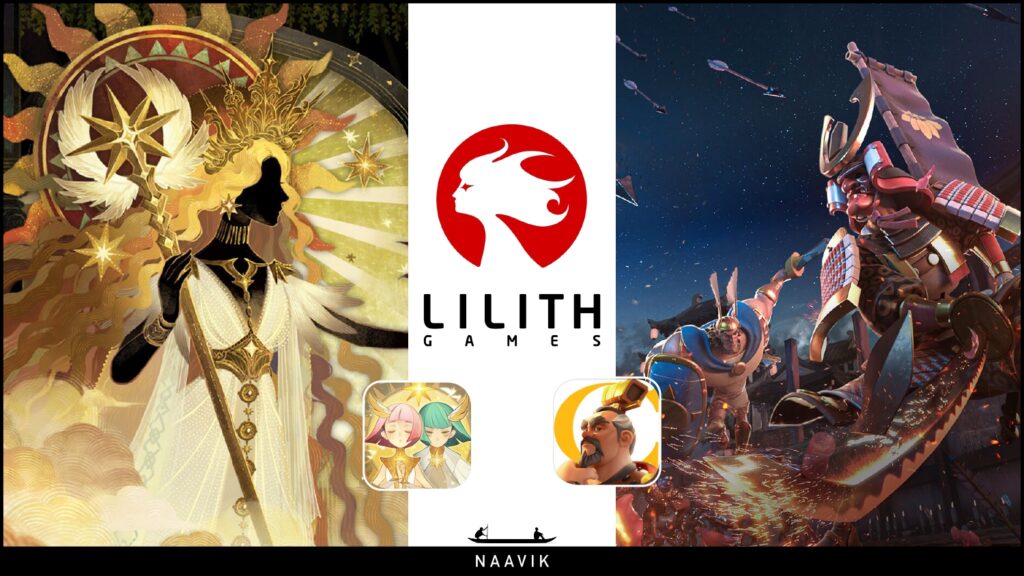Hi Everyone. Welcome back to another issue. Sunday’s most popular links include: the link to the newly expanded Naavik Discord, a piece on the power of gaming communities, and a preview into the technology powering Playable Worlds. Let’s dive into today’s issue.
#1 Naavik Collaboration: Gaming Industry Nearly Twice as Large as Reported, at $336B
In 2021, gaming — consistently reported as a roughly $175B industry — stands as the largest media category by revenue. Having recently claimed the leading position from long-term media behemoth linear television, gaming today is larger than the global music, film, and on-demand entertainment sectors combined. Nevertheless, and as counterintuitive as it may sound, to us at BITKRAFT and Naavik, $175B remains an incomplete underestimation of market size.
In our latest deep dive, we’ve partnered with BITKRAFT Ventures to explore the true size of the gaming industry. Make sure to check it out!
#2: China’s Ever-Stricter Rules
Source: WEF
Another month, another crackdown on gaming in China. The “spiritual opium” panic of August had Chinese regulators focused on gaming hours of under-18s (minors), causing gaming stocks like Tencent and Netease to drop about 10%. Since then, the latest regulation allows kids to play three hours a week, (8pm-9pm, Friday to Sunday). Chinese gaming companies signal they will go above and beyond to follow the rules.
This past week on September 9th, Chinese game companies experienced another $60B large drop when SCMP reported suspension/slow-down of new game approvals. While I don’t see the alleged change in game approvals to have any long term effects, the report hints on the potential drawback to game companies’ profitability. This is huge news as it indicates there are more regulations to come. According to xinhuanet, in addition to previous limitations for minors, F2P game design that generate excessive profits, game ads with celebrity endorsement, live-streaming, etc. are now on the table for discussion.
It’s always been well-known among peers in the global game industry that Chinese games are geared towards monetization, and now it seems the regulators could be targeting this in the upcoming months. Should this happen, the domestic sector should see a slowdown in the short term, as companies adjust to new models. For example, banning loot boxes will likely reduce revenue significantly while players can still get desired items and skins. There’s high probability this will significantly affect the China Gaming market in more profound ways since my last update.
However, I wouldn’t say that the Chinese game industry is doomed. Far from it — I believe the trend of stricter regulations will be long-term positive for Chinese game companies and gaming culture as it pushes game companies to focus on game quality instead of monetization. Chinese players have strong demand for new games and quality content. To accentuate this point, Harry Potter: Magic Awakened developed and published by Netease launched just this week in China and has been an instant hit. The new Harry Potter mobile game has incredible art and one of the more innovative gameplay. It amassed 15 million pre-orders before game launch and shot to No.1 on download and grossing charts in China at launch. If this is any indication to appetite for game quality, China gaming is still in a good spot long term. (Written by Owen Soh, Games Consultant)
📚 Content Worth Consuming
Star Atlas: Using The Metaverse to Create a Unique Play-To-Earn Metaverse (Delphi Digital): "The Delphi Podcast Host Jeremy Parris is joined by Michael Wagner (founder of Star Atlas). In this episode we explore not only what Star Atlas hopes to achieve in the future, but what they’ve already accomplished to date. We dive deep into the P2E weeds and imagine what a future looks like where someone could be a “space pirate” for a living. Beyond that we touch upon their upcoming TGE (token generation event) and what to expect next from the project." Link
It’s Time for Esports to Stop Idolizing Traditional Sports (a16z Future): “But beyond obvious differences in demographics, the models of viewer engagement are changing: Esports teams are looking less like traditional sports leagues and more like entertainment companies. Across all sports, the once-coveted linear broadcast rights model is flailing. We’re experiencing the equivalent of the abrupt shift from movie-going to streaming on demand as more and more fans watch games digitally. Nowhere is this more apparent than in the esports audience, the majority of whom consume broadcasts almost entirely online.” Link
Online World or Metaverse (Ralph Koster): “Online worlds lead to multiverses which lead to metaverses. And just about no one has actual metaverses to offer right now. Second Life is not a metaverse; after all, it’s just one world. A social online world oriented around creativity. Online worlds have been around since 1978. They started out being text-only, and only for games. But around 1985, online worlds that were just for socializing and chatting came along, and in 1989 worlds meant for creativity were invented. These three kinds of worlds have been the three major types ever since.” Link
Zero to Video Game in 60 Seconds (Game Developer): “Early on in the development of Playdate, we thought about ways to simplify and streamline the process of creating a video game. How about a Game & Watch style of game, where you’d essentially draw everything on one screen and "turn on" individual graphics according to a simple set of rules about "being in the right spot at the right time"? This was our very first attempt at a Playdate game, back when Playdate was a board with wires sticking out of it and we weren’t quite sure whether it was a fun distraction or a product we’d want so sell.” Link
🔥 Featured Jobs
- Mythical Games: Principal Economy Designer (Remote, US)
- Mythical Games: Lead Product Manger (SF, LA, Seattle)
- Carry1st: Ad Monetization Manager (Remote, Global)
- BITKRAFT Ventures: Crypto and Gaming Analyst (Remote, US or EU)
- Supersocial: Head of Business Performance (Remote, US)
- Supersocial: Principal Analyst (Remote, US)
- Metafy: Senior Technical Recruiter (Remote, US)
- Metafy: Lead Marketing Designer (Remote, US)
You can view our entire job board — all of the open roles, as well as the ability to post new roles — below.
Thanks for reading, and see you next week! As always, if you have feedback let us know here.










